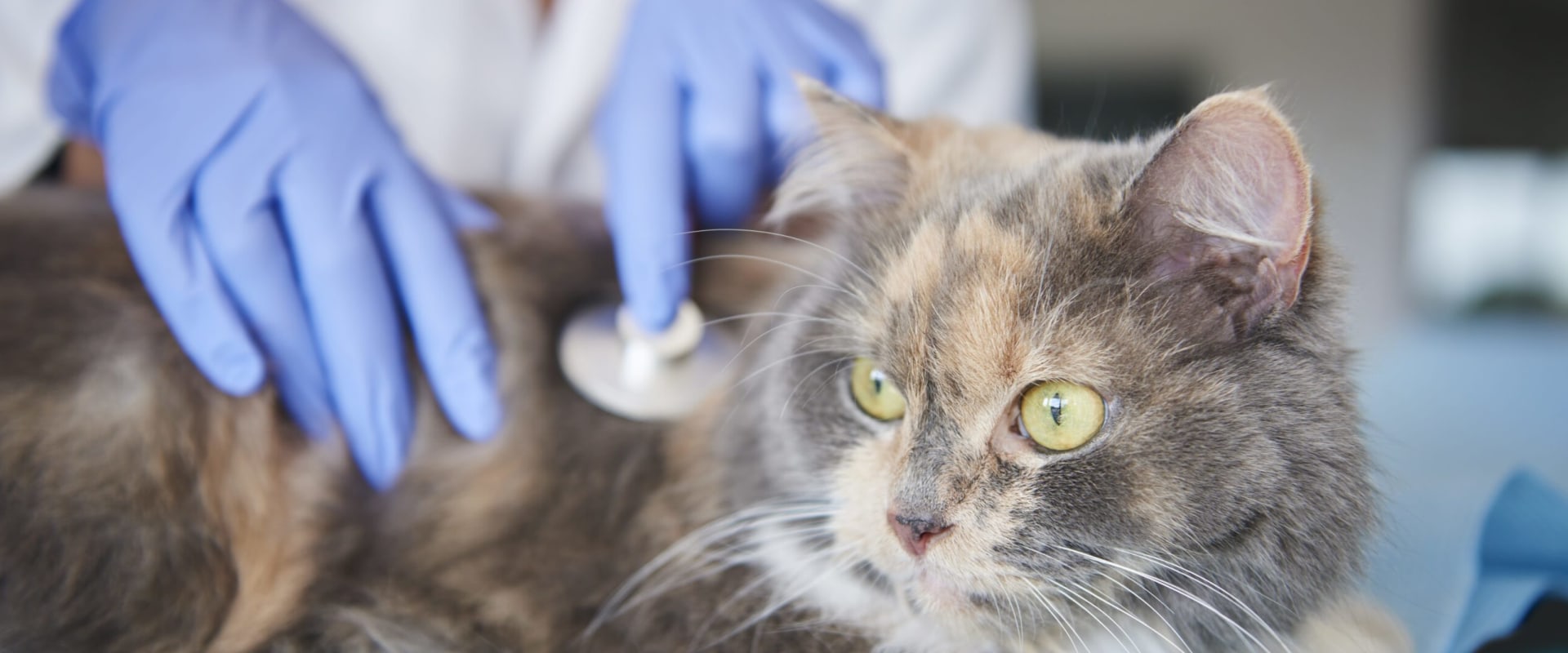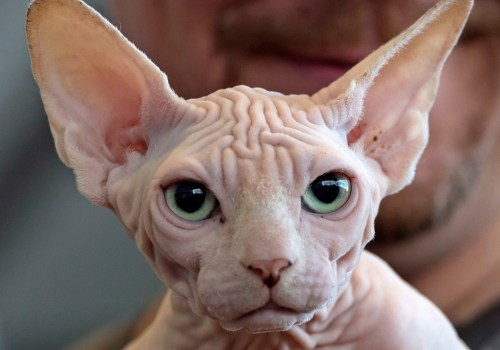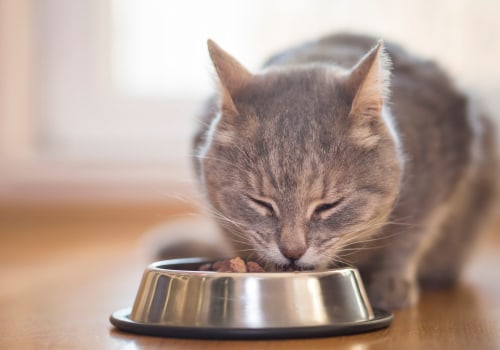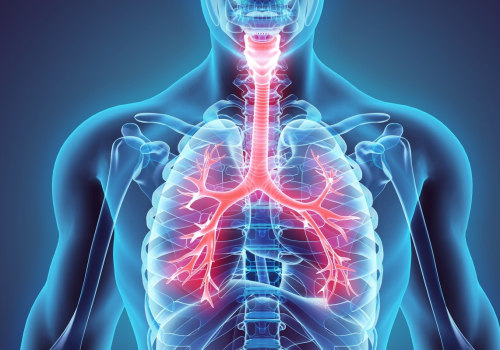Kidney disease is a serious medical issue that can be life-threatening if not treated promptly. It is particularly concerning when it affects cats, as these beloved pets are especially prone to kidney disease due to their small size and delicate physiology. The good news is that with proper diagnosis and treatment, many cats with kidney disease can lead healthy lives. In this article, we'll look at the causes, symptoms, and treatments for kidney disease in cats.
Kidney disease
is a serious condition that can affect cats of all ages.Early detection and treatment is key to helping your cat live a long and healthy life. In this article, we’ll discuss the signs, symptoms, and treatments of kidney disease in cats so you can be better prepared to help your pet. Kidney disease in cats is most commonly caused by the accumulation of toxins in the body, such as those found in processed foods or medications. Other causes include infection, trauma, inflammation, and genetic disorders.
Kidney disease can be divided into three main stages: mild, moderate, and severe. Mild kidney disease is characterized by increased thirst and urination. Cats may also have pale gums and eyes, weak appetite, and weight loss. Moderate kidney disease is when the cat has visible signs of dehydration, increased thirst and urination, poor appetite, and weight loss.
Severe kidney disease is when the cat has difficulty breathing, anemia, vomiting, and diarrhea. There are several types of kidney diseases that can affect cats. Chronic renal failure (CRF) is the most common form of kidney disease in cats. It occurs when the kidneys become damaged over time due to a buildup of toxins or other factors.
Acute kidney injury (AKI) is a sudden loss of kidney function due to trauma, infection, or ingestion of toxins. This type of kidney disease can be fatal if not treated quickly. Treatment for kidney disease in cats will depend on the severity of the condition and the underlying cause. Common treatments include medication to reduce inflammation and lower toxin levels in the body, as well as dietary changes to reduce stress on the kidneys.
In cases of severe kidney disease, dialysis may be necessary to help filter toxins from the body. Lifestyle changes can also help improve a cat's health. A balanced diet full of fresh fruits and vegetables can provide essential vitamins and minerals that are important for kidney health. Regular exercise can also help keep your cat’s kidneys functioning properly by helping to flush out toxins.
Additionally, it’s important to keep your cat hydrated by providing fresh, clean water at all times.
Treating Kidney Disease in Cats
Kidney disease can be a serious and life-threatening condition in cats. Fortunately, there are a number of treatments available to help improve the cat's health and quality of life. These include medications, dietary changes, fluid therapy, and supplements. Medications are often used to control the symptoms of kidney disease in cats, such as decreased appetite, dehydration, and anemia. In some cases, the cat may need to take a course of antibiotics or other medications to help fight infection and reduce inflammation.It is important to follow your veterinarian's instructions when giving your cat any medication. Dietary changes may also be needed to help manage kidney disease in cats. Your veterinarian may recommend a special low-protein diet to help reduce the stress on the kidneys. They may also suggest increasing the amount of water your cat drinks, as well as adding supplements to their diet to help support kidney health. Fluid therapy is also an important part of treating kidney disease in cats. This involves giving the cat intravenous fluids to help flush toxins out of their system and maintain hydration.
This is often done on an outpatient basis, but some cats may need to be hospitalized for more intensive treatment. Finally, supplements can also be used to help support the kidneys and reduce the symptoms of kidney disease. These can include vitamins, minerals, and herbs that are specifically designed for cats with kidney disease. It is important to discuss any supplements you are considering with your veterinarian before giving them to your cat. With proper treatment and care, cats with kidney disease can live long and healthy lives. Early detection and treatment is key to helping your cat manage their condition.
Talk to your veterinarian if you have any concerns about your cat's health.
Diagnosing Kidney Disease in Cats
Understanding the signs and symptoms of kidney disease in cats is the first step towards making sure your pet receives the proper treatment. But to confirm the diagnosis, a veterinarian will need to perform a series of tests. These tests can help determine the severity and stage of the condition, as well as provide information about potential treatments. The most common methods used to diagnose kidney disease in cats are physical exams, lab tests, urinalysis, ultrasound or x-ray imaging, and biopsy. Each method can provide useful information to help your veterinarian make an accurate diagnosis.Physical Exams
A physical exam is an important part of diagnosing any health condition in cats.During the exam, your veterinarian will take your cat's vital signs (temperature, heart rate, and respiration) and check for any physical signs of kidney disease. They may also check your cat's weight and body condition score to determine if there are any changes that could be related to the disease.
Lab Tests
Laboratory tests are commonly used to diagnose kidney disease in cats. These tests can measure levels of electrolytes, proteins, glucose, and other substances in the blood and urine. Abnormal levels can indicate a problem with the kidneys.Your veterinarian may also perform a complete blood count (CBC) to check for any underlying health conditions that could be causing or contributing to the kidney disease.
Urinalysis
Urinalysis is another useful tool for diagnosing kidney disease in cats. During this test, your veterinarian will collect a sample of your cat's urine and check it for abnormal levels of proteins, electrolytes, sugar, and other substances. Abnormal levels can indicate that there is something wrong with the kidneys.Ultrasound or X-Ray Imaging
Ultrasound or x-ray imaging can provide detailed images of the kidneys and other organs to help diagnose kidney disease in cats. These imaging techniques can help your veterinarian identify any abnormalities that may indicate a problem with the kidneys.Biopsy
In some cases, a biopsy may be needed to confirm a diagnosis of kidney disease in cats.During this procedure, a small sample of tissue is taken from the kidneys and examined under a microscope. This can help your veterinarian identify the specific type of kidney disease present and determine the best treatment plan for your cat. By understanding the methods used to diagnose kidney disease in cats, you can be better prepared to help your pet receive the proper care and treatment they need. Kidney disease is a serious condition in cats that can lead to long-term health issues if left untreated. Early diagnosis and treatment is essential for cats with kidney disease, as it can help them live a longer and healthier life. This article has provided important information about the signs, symptoms, and treatments of kidney disease in cats.
It is important to be aware of these warning signs so that owners can seek medical attention for their cats if needed. If you are concerned that your cat may have kidney disease, it is best to speak to your veterinarian as soon as possible. It is also important to remember that there are many resources available for pet owners who want to learn more about kidney disease in cats. Whether you have a cat with kidney disease or are just looking for more information, there are numerous resources available to help you better understand this condition.











